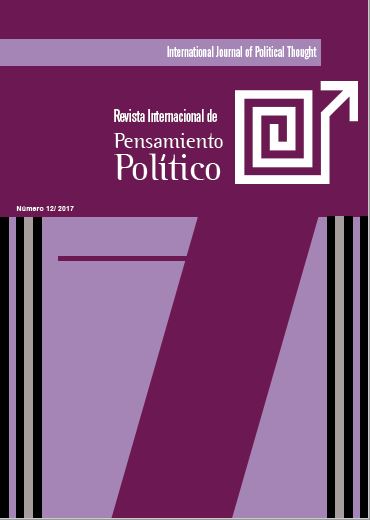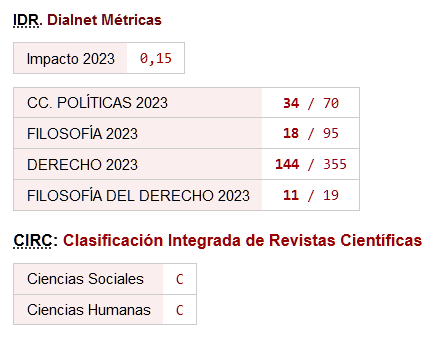Technopolitics movements in Latin America. Comparison of #yosoy132 and Chilean student movement
DOI:
https://doi.org/10.46661/revintpensampolit.3222Keywords:
Chilean student movement, #YoSoy132, Technopolitics, Digital Public SpaceAbstract
In this paper the comparison of two Latin American social movements is made: the Chilean Student Movement (2011) and the # YoSoy132 movement in Mexico. The study of the two movements tries to decipher the characteristics of these, their differences and similarities. It compares with the intention of being able to observe its particularities. The cases are studied, first from a historical-descriptive view; second, we analyze the structure, the form of organization and the decision making; Third, we review strategies for mobilization and political action; fourth, we investigate communication strategies; and, fifth, we review the scope and possible successes of the two movements studied. For the development of these variables, semi-structured interviews were carried out with participants of the movements, which allowed us to reflect the actor’s perspective on his social complexity.
Downloads
References
Aguilera, O. (2014). Generaciones: movimientos juveniles, políticas de la identidad y disputas por la visibilidad en el Chile neoliberal. Argentina: CLACSO.
Arditi, B. (2012). “Las insurgencias no tienen plan, ellas son el plan: performativos políticos y mediadores evanescentes en 2011”. México: Debate Feminista.
Avendaño, O. (2014). “Fracturas y representación política en el movimiento estudiantil chileno 2011”. Chile: Última década No. 41.
Cárdenas, C. (2014). “Representación de la acción política de los estudiantes chilenos. Movilización de significados en redes sociales”. Chile: Última década, No. 41, pp. 57-84.
Castells, M. (2009). Comunicación y poder. Madrid: Alianza Editorial.
Garretón, M. (2012). Neoliberalismo corregido progresismo limitado. Los gobiernos de la concertación 1990—2010. Chile: CLACSO.
Morlino, L. (1994). “Problemas y opciones en la comparación”. En Sartori, G. y L. Morlino (compiladores), La comparación en las ciencias sociales. Madrid: Alianza Editorial.
Ronfeldt, A. (1998). The Zapatista ‘Social Netwar’ in Mexico. Rand Arroyo Center’s Strategy and Doctrine Program.
Rovira, G. (2007). La red transnacional de solidaridad con la rebelión indígena de Chiapas y el ciclo de protestas contra la globalización. México: Tesis para optar al grado de Doctor, UAM-Xochimilco.
Rovira, G.. (2009). “Las redes y el optimismo tecnológico de los activistas en los años noventa frente a la realidad de la primera década del 2000”. Ponencia presentada en el Congreso de la Asociación de Estudios Latinoamericanos, Río de Janeiro, Brasil.
Rovira, G.. (2013). “De las redes a las plazas: la Web 2.0 y el nuevo ciclo de protestas en el mundo”. Acta Sociológica, 62, pp. 105-134.
Sartori, G. (1984) La política, lógica y método en las ciencias sociales. México. Fondo de Cultura Económica.
Sartori, G. (1994). “Comparación y Método Comparativo”. En G. Sartori y L. Morlino (Compiladores), La comparación en las ciencias sociales. Madrid: Alianza Editorial.
Toret, J. (2013). Tecno—política: la potencia de las multitudes conectadas. El sistema red 15M, un nuevo paradigma de la política distribuida. España: Universitat Oberta de Catalunya, Datanalysis15M.
Downloads
Published
How to Cite
Issue
Section
License
Copyright (c) 2018 Revista Internacional de Pensamiento Político

This work is licensed under a Creative Commons Attribution-NonCommercial-ShareAlike 4.0 International License.
Open access policy
Free and open access is allowed to any interested party to all the contents of the journal issues, free of charge, being able to print and transfer all the articles, with the only condition of specifying the source and authorship.
The journal: a) does not charge authorship costs for the processing of articles or for their submission, b) maintains copyright for authors without restrictions, c) facilitates authors to keep their publication rights without limitations.
The International Journal of Political Thought is an original work of the Laboratory of Political Ideas and Practices of the Pablo de Olavide University. All articles included in the Journal are original work of their respective authors. This Journal is freely offered to the scientific and academic community at no cost and releases the contents according to the license "Attribution-NonCommercial-ShareAlike 4.0 CC BY-NC-SA" of the Creative Commons project available in the following url: https://creativecommons.org/licenses/by-nc-sa/4.0/legalcode
If you wish to translate or compile any of the articles available here, please contact us at contacto












 ISSN: 1885-589X
ISSN: 1885-589X  Universidad Pablo de Olavide
Universidad Pablo de Olavide